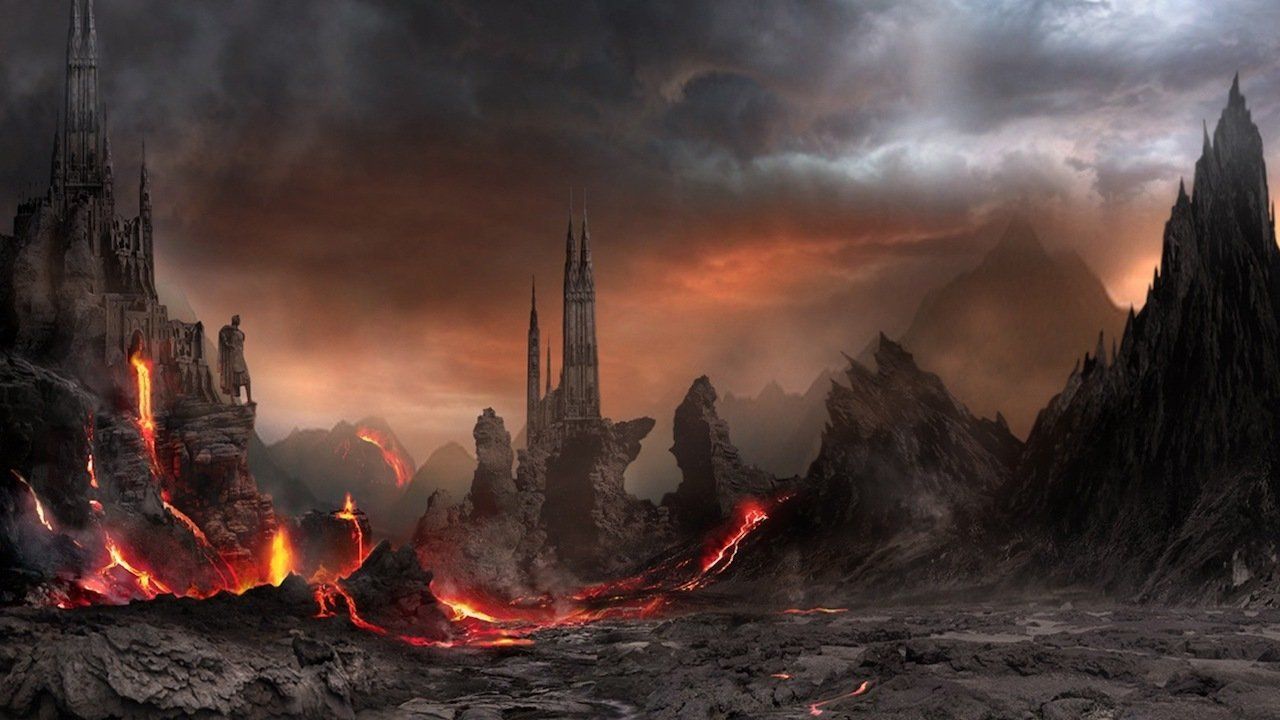THE TWENTIETH
century was the bloodiest century in human history. It was characterized by two world wars, which killed collectively between 70-100 million people, and a cold war which potentially could have killed many more people than the two world wars combined. The members of the Inklings, including J. R. R. Tolkien and C. S. Lewis, lived through all three of these deadly or potentially deadly conflicts.
Tolkien referred to World War II as “the first War of the Machines.” But that dubious distinction really belongs to World War I, which was known as the Great War until it was eclipsed by the even greater war that followed it. Men were mutilated on the altars of new technology in WWI on a scale that could not have been imagined earlier. It was the first war in which aviation played a role, and the war in which the tank made its deadly and dramatic debut. The big guns were bigger than ever, and the machine guns were more mechanistically efficient at killing multitudes of people at once; there was also the new invention of barbed wire on which to become entangled, and new chemical weapons, such as mustard gas, in which to drown. For Tolkien, who experienced what he called the “animal horror” of the Battle of the Somme, it took an orc-like imagination to invent such weapons of mass destruction. “Now goblins are cruel, wicked, and bad-hearted,” he wrote in The Hobbit. “They make no beautiful things, but they make many clever ones. . . . It is not unlikely that they invented some of the machines that have since troubled the world, especially the ingenious devices for killing large numbers of people at once, for wheels and engines and explosions always delighted them. . .”
It would have been very easy for Tolkien and Lewis to have become embittered by their experience of the trenches in the first world war. Both men lost close friends in the war, and both men experienced horrors that would be difficult for most of us to even imagine. And yet they emerged from their world on fire with imaginations that would set the world ablaze with the flame of divine light and love. Tolkien began working in earnest on the invention of his elvish language in 1915 and 1916, only months before the “animal horror” of the Somme, and this would serve as the inspirational launching pad for the creation of Middle-earth in which his world-changing stories are set. Meanwhile, C. S. Lewis discovered the works of G. K. Chesterton in early 1918, while serving in the British Army and recovering from trench fever, an encounter that would set his soul on the road to recovery. Reading Chesterton helped baptize Lewis’s imagination, contributing to his transition from cynical atheism to Christian conversion. And so it was that Lewis and Tolkien received priceless inklings of light amid the darkness of war. From the very ashes of the World on Fire these great writers would enkindle the power and the glory of the Word on Fire!
Joseph Pearce
is a native of England. He is Senior Editor at the Augustine Institute, Senior Fellow and Journal Editor at the Cardinal Newman Society, Editor of the St. Austin Review, Executive Director of Catholic Courses, Senior Contributor at The Imaginative Conservative, and Tolkien and Lewis Chair in Literary Studies at Holy Apostles College & Seminary. He is a world-recognized biographer of modern Christian literary figures, and has authored over twenty books.










